Introduction:
In the digital age, the field of education is undergoing a transformative shift driven by technological advancements and the increasing demand for flexible and accessible learning opportunities. One technological innovation that has revolutionized how education is delivered is the Learning Management System (LMS). An LMS is a powerful software application with a centralized platform for managing and providing educational content, facilitating communication and collaboration, and tracking learner progress. With its various features and functionalities, an LMS offers educators and learners a dynamic and interactive online environment that transcends traditional classroom boundaries.
Structure of Learning Management Systems:
Learning management systems are typically composed of several core components that work together to facilitate the management and delivery of educational content. These components include:
- User Management: LMS platforms allow administrators to create and manage user accounts, including students, teachers, and administrators. User management features enable assigning roles, access privileges, and personalized profiles.
- Course Management: LMS platforms provide tools for organizing and structuring courses. Educators can create course modules, upload learning materials, and design assessments. Course management features allow for the seamless organization and delivery of educational content.
- Communication and Collaboration: LMS platforms offer communication tools like discussion forums, chat functions, and messaging systems. These features enable real-time interaction and collaboration among students and instructors, fostering engagement and knowledge sharing.
- Assessment and Grading: LMS platforms include assessment tools that facilitate creating and administrating quizzes, assignments, and exams. Educators can set grading criteria and automate the grading process, saving time and ensuring consistency.
- Content Management: LMS platforms allow educators to create, upload, and organize learning resources such as documents, videos, and interactive multimedia. Content management features enable easy access to course materials and support a variety of instructional formats.
Technologies and Software Components in Learning Management Systems (LMS):
In a Learning Management System (LMS), various technologies and software applications enable functionality and provide a comprehensive learning environment. Here are some key technologies and software components commonly used in an LMS:
- Web Technologies: LMS platforms are typically web-based, utilizing technologies such as HTML, CSS, and JavaScript to create the user interface and deliver content over the internet. These technologies ensure cross-platform compatibility and allow users to access the LMS from various devices.
- Database Management System (DBMS): LMS platforms rely on a DBMS to store, organize, and retrieve data efficiently. Popular DBMS options include MySQL, PostgreSQL, and Oracle. The DBMS handles user data, course information, progress tracking, and other relevant data within the LMS.
- Content Authoring Tools: LMS platforms often integrate content authoring tools to create interactive and engaging learning materials. These tools enable educators to develop multimedia content directly within the LMS, including presentations, videos, quizzes, and assessments.
- Communication and Collaboration Tools: LMS platforms employ various communication and collaboration tools to facilitate interaction and engagement among learners and instructors. These tools can include discussion forums, chat systems, messaging functionalities, and video conferencing capabilities.
- Assessment and Grading Tools: LMS platforms provide built-in assessment and grading tools that enable educators to create and administer quizzes, assignments, and exams. These tools may include features for automated grading, rubric-based estimates, and feedback generation.
- Analytics and Reporting Tools: LMS platforms incorporate analytics and reporting tools to collect and analyze learner activities, performance, and engagement data. These tools generate reports and visualizations that provide insights into learner progress, completion rates, and performance outcomes.
- Integration with External Systems: LMS platforms often integrate with external systems and tools to enhance functionality and interoperability. This may include integration with student information systems (SIS), learning tools interoperability (LTI) standards, and external content repositories, allowing seamless data exchange and content integration.
- Mobile Applications: Many LMS platforms offer mobile applications that allow learners to access course materials, participate in discussions, and submit assignments from their mobile devices. These mobile applications leverage technologies such as native app development or cross-platform frameworks like React Native.
- Security and Authentication Systems: LMS platforms implement security measures to protect user data and ensure secure access. This can include encryption protocols, specific login mechanisms, and user authentication systems to safeguard sensitive information and maintain privacy.
- Scalability and Cloud Infrastructure: LMS platforms often leverage cloud computing infrastructure to provide scalability, reliability, and flexibility. Cloud-based hosting services like Amazon Web Services (AWS) or Microsoft Azure enable seamless scaling of resources to accommodate varying user demands.
By harnessing these technologies and software applications, LMS platforms offer a robust and comprehensive learning environment that supports content delivery, communication, collaboration, assessment, analytics, and integration, facilitating effective teaching and learning experiences.
Research Findings and Case Studies:
Research on learning management systems has yielded valuable insights into their impact on educational outcomes. Several studies have highlighted the following benefits and findings:
- Improved Learning Outcomes: Research shows that using LMS platforms positively influences student learning outcomes. The ability to access course materials, engage in interactive activities, and receive timely feedback enhances student engagement, motivation, and comprehension.
- Enhanced Collaboration: Learning management systems facilitate collaboration among students and teachers. Research has found that collaborative learning experiences within LMS platforms promote higher levels of engagement, critical thinking, and knowledge construction.
- Personalized Learning: LMS platforms offer features for adaptive and personalized learning experiences. Research has demonstrated that the ability to tailor instruction to individual student’s needs and provide targeted resources and interventions improves learning outcomes and student satisfaction.
- Time and Resource Efficiency: LMS platforms streamline administrative tasks like grading and content management, freeing educators’ time for more focused instructional activities. Research indicates that LMS platforms increase educators’ and learners’ efficiency and productivity.
- Accessible Learning: Learning management systems support anytime, anywhere learning. Research findings reveal that LMS platforms improve access to education for learners with diverse backgrounds and needs, promoting inclusivity and equitable educational opportunities.
Case studies on implementing learning management systems across educational institutions have demonstrated their effectiveness. Institutions have reported increased student engagement, improved academic performance, and enhanced collaboration and communication among students and instructors. Additionally, case studies have highlighted the flexibility and scalability of LMS platforms, enabling institutions to adapt to changing educational needs and environments.
Conclusion:
Learning management systems have transformed the educational landscape by providing a platform for managing and delivering courses. With their user-friendly interfaces and powerful features, LMS platforms have proven effective in improving learning outcomes, promoting collaboration, and enhancing educational experiences. The research findings and case studies provide compelling evidence of the positive impact of LMS platforms on student engagement, personalization of learning, efficiency, and accessibility. As educational institutions embrace digital technologies, learning management systems will be crucial in shaping education’s future, empowering educators and learners to pursue knowledge and growth.



